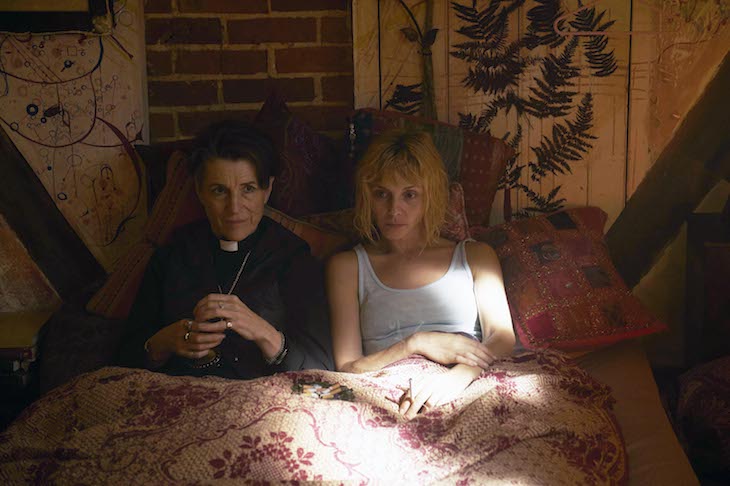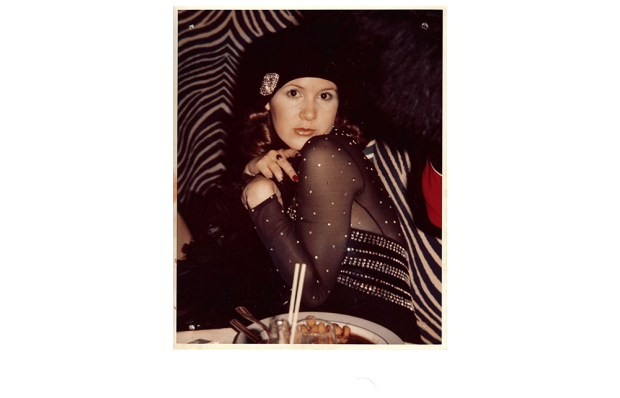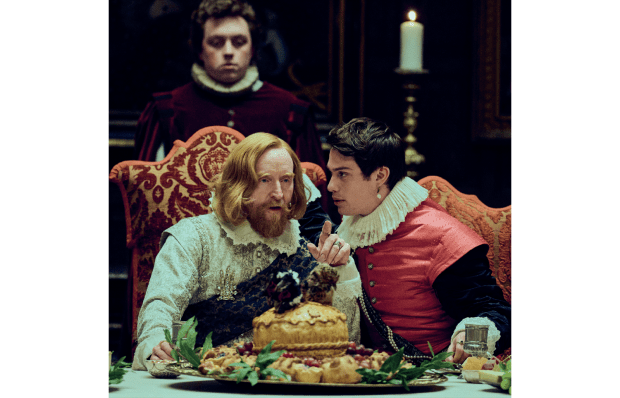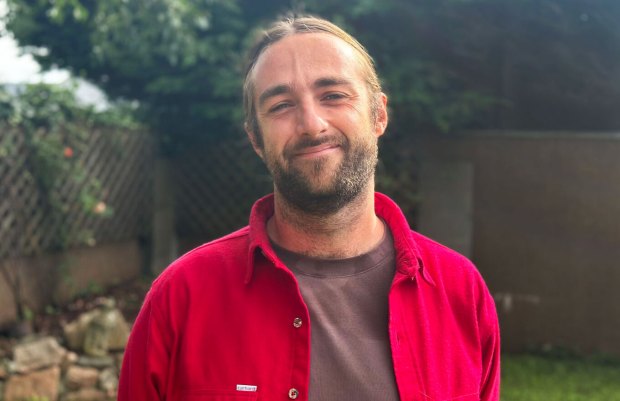On Wednesday, BBC Four made an unexpectedly strong case that the human body is a bit rubbish. Our ill-designed spines, for example, guarantee that many of us will suffer from chronic back pain. Our joints wear out long before we do. Our skin even gets damaged by sunlight.
So what can be done about it? Obviously the answer is not much — but that didn’t prevent Can Science Make Me Perfect? With Alice Roberts from pretending to give it a go.
The premise was that Roberts would draw on other, less incompetently constructed life forms to create an improved version of herself — the way she’d be if evolution hadn’t cocked things up so badly. As befits someone whose name appears in programme titles, Roberts clearly relished her God-like role. Before long, she’d decided to give herself a chimpanzee’s shorter, stiffer spine and an emu’s shock-absorbing legs. Warming to her task (or possibly just getting carried away), she then opted for large revolving ears, eyes big enough to see in the dark and, to make childbirth easier, a kangaroo’s pouch.
Once again, Roberts proved an appealing presenter as well as a knowledgeable one and we certainly learned a lot about both human and non-human anatomy. For the more gloomy viewer, there were also plenty of reminders of how quickly nature loses interest in our welfare once we’re past child-rearing age.
But of course a TV show needs a sturdy spine of its own — and here that relied on the usual television tricks. At the beginning, Roberts was summoned to the Science Museum to feign surprise when she was given her human-makeover mission — and to feign even more when she was asked for a physical model of her perfected self to exhibit there in three months’ time. (‘A physical model? Three months?’ Roberts duly replied, doing her plucky best to sound completely blindsided.)
Luckily, though, she happened to know a bloke who could turn her thoughts into a 3-D computer representation; and another who could then build the required physical model that neither she nor we were allowed to see before the big reveal (although we did get the odd teasing glimpse in the manner of the Mystery Guest round in A Question of Sport).
Eventually, the new Alice was flourishingly unveiled — and seemed to prove two things. First, despite the programme’s title, it wasn’t science that had ‘perfected’ her, but her own imagination. (Emu legs and kangaroo pouches, I think it’s safe to predict, won’t be available on the NHS any time soon.) Second, while the new, improved Alice might have been able to hear better, give birth more easily and so on, she was also pretty unlikely to get a date.
Flowers, which ran all week on Channel 4, was thrillingly good to watch — but is, I now realise, extremely tricky to summarise. The show is routinely described as a ‘dark comedy’. But that doesn’t come close to capturing its exhilarating, unselfconscious originality. Or the constantly astonishing handbrake turns of tone in its combination of the Gothic, straight drama (often piercingly sad), almost straight sitcom (often very funny), art-house cinema, dream sequences and meditation on mental illness — all of which it does without ever losing coherence.
The Flowers of the title are a family living in a tumbledown cottage in the woods. Dad Maurice (Julian Barratt) is a children’s author — hence, perhaps, that fairytale house — who in this second series emerges from the severe depression that nearly did for him in the first. Mum Deborah (Olivia Colman) has just written a book on what it was like to be married to him at the time, which her publishers have insisted on calling Living with the Devil. Daughter Amy (Sophia Di Martino) is an avant-garde composer with mental troubles of her own and an ex-junkie vicar for a girlfriend. Son Donald (Daniel Rigby) has now abandoned his inventing career to become a plumber known (by himself, at least) as Mr Pipe Man.
But that’s only for starters — because Flowers also features a large cast of supporting characters, most of whom are also unhappy in a variety of heightened but still convincing ways.
In the circumstances, the show’s writer and director Will Sharpe could have been forgiven for simply revelling in the weirdness. Instead, he treats all concerned with a level of sympathy that borders on the tender and, however unhinged the action becomes (Sample line: ‘Amy’s disappeared with Shun’s pervert girlfriend’s bastard baby from Sweden’), a real sense of people doing their best — bad though that best can sometimes be.
And just in case there’s any doubting the depth of Sharpe’s talent, he also plays Maurice’s Japanese illustrator, who regards the family much as we do: with a mixture of alarm, pity, slightly baffled admiration — and, in the end, even something approaching love.
Got something to add? Join the discussion and comment below.
Get 10 issues for just $10
Subscribe to The Spectator Australia today for the next 10 magazine issues, plus full online access, for just $10.
You might disagree with half of it, but you’ll enjoy reading all of it. Try your first month for free, then just $2 a week for the remainder of your first year.














Comments
Don't miss out
Join the conversation with other Spectator Australia readers. Subscribe to leave a comment.
SUBSCRIBEAlready a subscriber? Log in